NORTH AMERICAN GRANITE LANDFORMS
The origin and age of granite landforms has long intrigued Geomorphologists.
In order to estimate the rate at which these landforms change as a function
of climate, particularly precipitation, we collected samples from three
very different locations across the southern US including: the Alabama Hills
of southern California (of John Wayne fame), the Llanno uplift of central
Texas, and Stone Mountain in Georgia (of Olympic fame). We find that the
granites in arid California are eroding mot slowly, on the order of a few
meters per million years whereas the granites in Georgia are eroding more
quickly, 5-10 m/My. Our initial data from the Stone Mountain area suggest
it's been around a while. Erosion rates on the adjacent plain are 20m/My
whereas the rock is eroding at about 7 m/My. Given this differential, the
220 m high Stone Mountain took upwards of 10 million years to obtain it
current stature!
Llanno Uplift, Texas
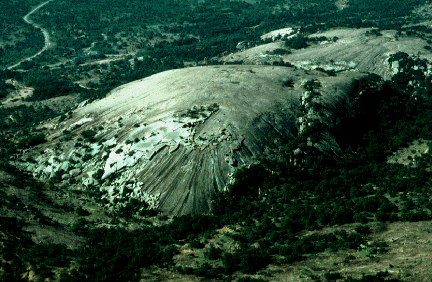
ENCHANTED ROCK RISES ABOUT 100m ABOVE THE SURROUNDING PLANE
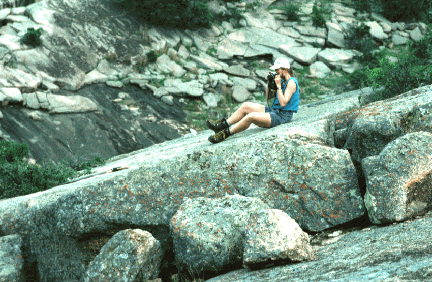
CHRISTINE MASSEY SITS ON A SHEET AT THE LOWER PART OF LITTLE ROCK
Alabama Hills, California
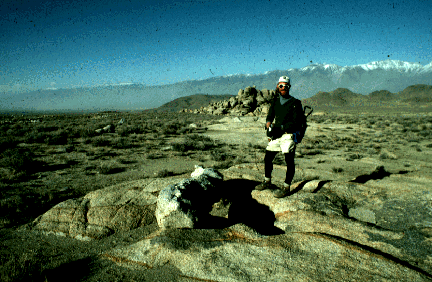
WEATHERD BOULDER FROM SIERRA NEVADA ON ALABAMA HILLS BEDROCK SURFACE
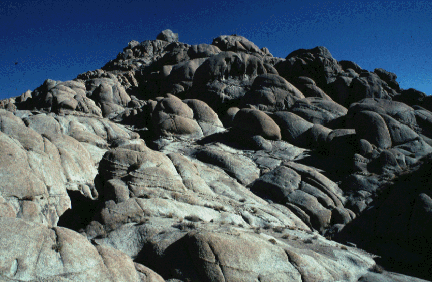
WEATHERED SURFACES OF THE ALABAMA HILLS
Georgia Piedmont
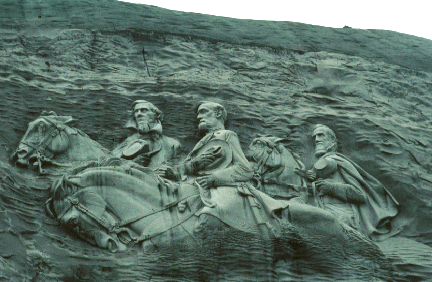
WEATHERING FEATURES ON STONE MOUNTAIN
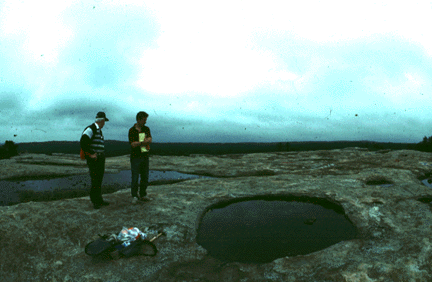
THE TOP OF ARABIA MOUNTAIN APPEARS TO BE ERODING AT ABOUT 4 M/My
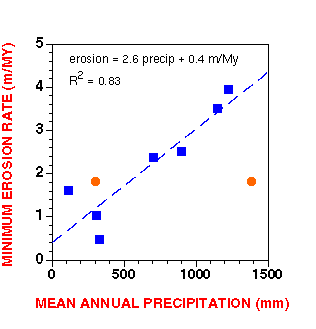
IT APPEARS THAT COSMOGENICALLY ESTIMATED MINIMUM MODEL RATES OF EROSION
SCALE WELL WITH MEAN ANNUAL PRECIPITATION
For more information see
Bierman, P., Gillespie, A., Caffee, M. and Elmore, D. (1995). Estimating
erosion rates and exposure ages with 36Cl produced by neutron activation.
Geochimica et Cosmochimica Acta, 59, 3779-3798.
Bierman, P. (1994). Using in situ cosmogenic isotopes to estimate rates
of landscape evolution: A review from the geomorphic perspective. Journal
of Geophysical Research (special issue on Tectonics and Topography),
99, B-7, 13,885-13,896.
Research supported by PRIME, Purdue University; CAMS, Livermore National
Laboratory; NSF, Geology and Paleontology. In collaboration with David Elmore
(PRIME), Marc Caffee (LLNL), Alan Gillespie (UW), Milan Pavich (USGS)








